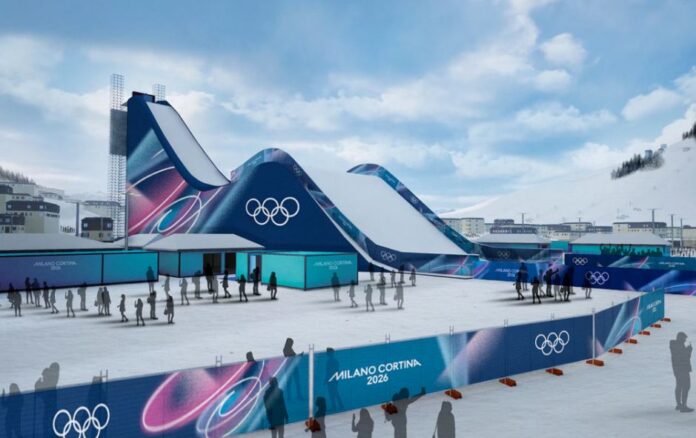The countdown to the 2026 Winter Olympics has begun, but Italy’s iconic ski resort, Cortina d’Ampezzo, is grappling with a significant challenge: a noticeable lack of natural snow. The beautiful Dolomites, where skiers usually revel in powdery conditions, are now more dependent on artificial snow due to the warming effects of climate change.
As the historic town prepares to co-host the Games with Milan, builders are in a race against time to finish key infrastructure like the sliding centre, while the region faces the broader issue of diminishing natural resources essential for winter sports. This backdrop paints a complex picture as Italy aims to showcase its capabilities on the global stage while addressing environmental sustainability.
Key Developments:
Sliding Centre Deadline: Local builders are racing against time to complete the new centre for bob, skeleton, and luge competitions by March for initial testing by athletes.
Climate Challenges: With natural snow increasingly scarce, the resort relies heavily on artificial snow to maintain its ski slopes.
Hosting Details: Cortina, together with Milan, will co-host the Games from February 6-22, 2026, with events spread across five additional venues, culminating in a closing ceremony in Verona.
Mayor’s Assurance: Cortina’s Mayor Gianluca Lorenzi dismissed any concerns about moving events to Lake Placid, emphasizing that the local sliding centre is on track for completion. “As of today, a Plan B for the bob races does not exist anymore,” Lorenzi stated, expressing confidence in the local infrastructure.
Infrastructure Costs: The revamp of the Eugenio Monti track, named after the 1956 Olympic silver medalist, comes with a hefty price tag of 118 million euros, part of a broader 3.4 billion euros infrastructure budget for the Games.
Community Voices:
Davide Hirschstein, a local bakery worker, sees potential in the new facilities to boost local sports and tourism.
Marina Menardi, an activist, warns that the new centre might become a financial burden post-Olympics, referencing the abandoned sliding venue from the 2006 Turin Winter Games.
Environmental Impact:
The reliance on artificial snow is stark, with around 90% of Italy’s ski slopes needing it, according to environmental group Legambiente. This dependency is evident in Cortina, where snow-making technology ensures the slopes remain usable from December to April.
Snowmaking Expertise: TechnoAlpin, an Italian company previously involved in the Beijing 2022 Winter Olympics, is pivotal in providing snowmaking systems. “Italian resorts are well-equipped,” said Nemanja Dogo, executive sales manager at TechnoAlpin.
Looking Forward: Despite the challenges, the upcoming Olympics are seen as an opportunity for Cortina. Local hotelier Michael Zanatta is optimistic about the global exposure, hoping it will attract tourists year-round to the scenic Dolomites, recognized as a UNESCO World Heritage site.
As the Games approach, Italy’s readiness to host under changing climatic conditions remains under scrutiny, highlighting the broader implications for winter sports in the era of global warming.



